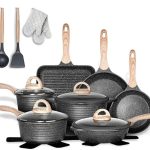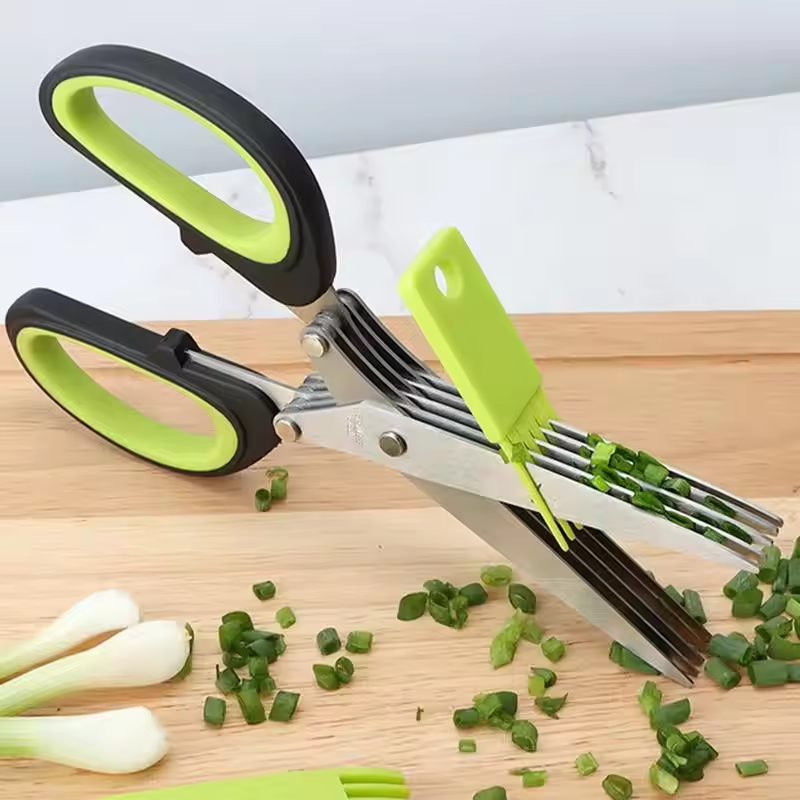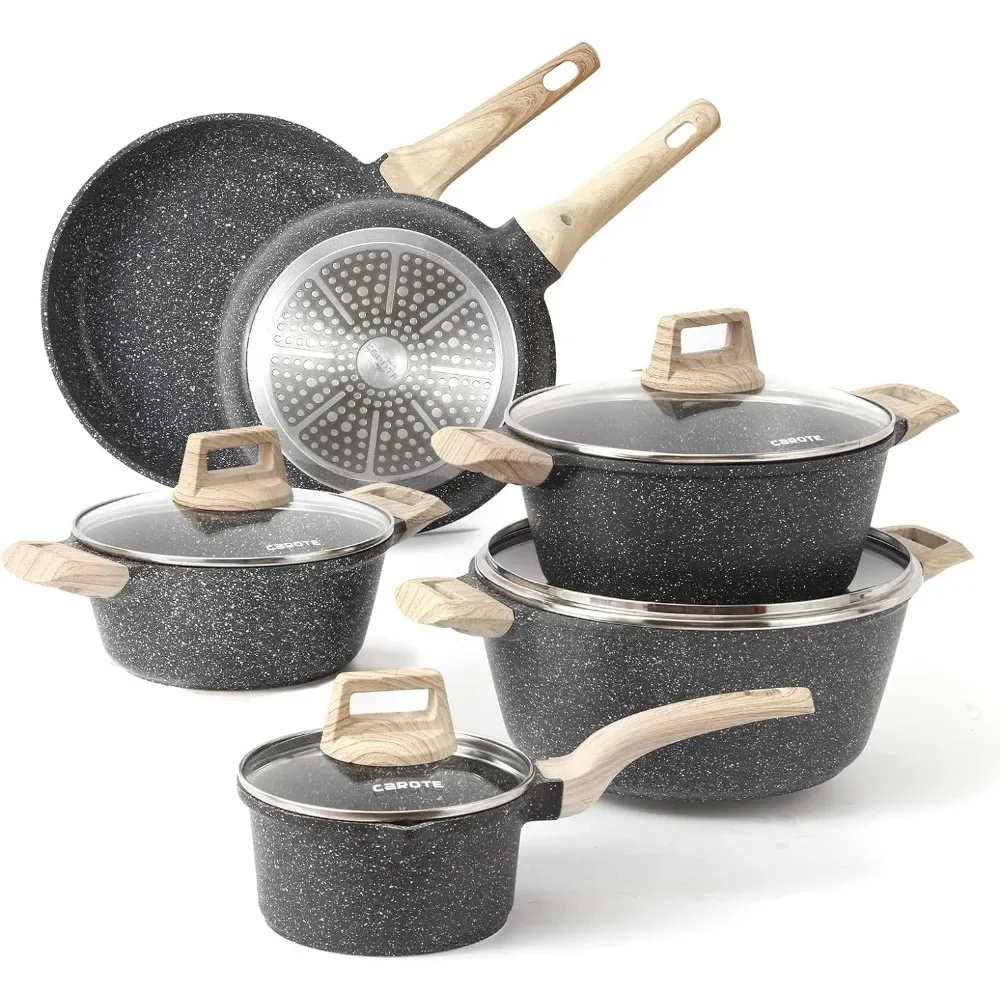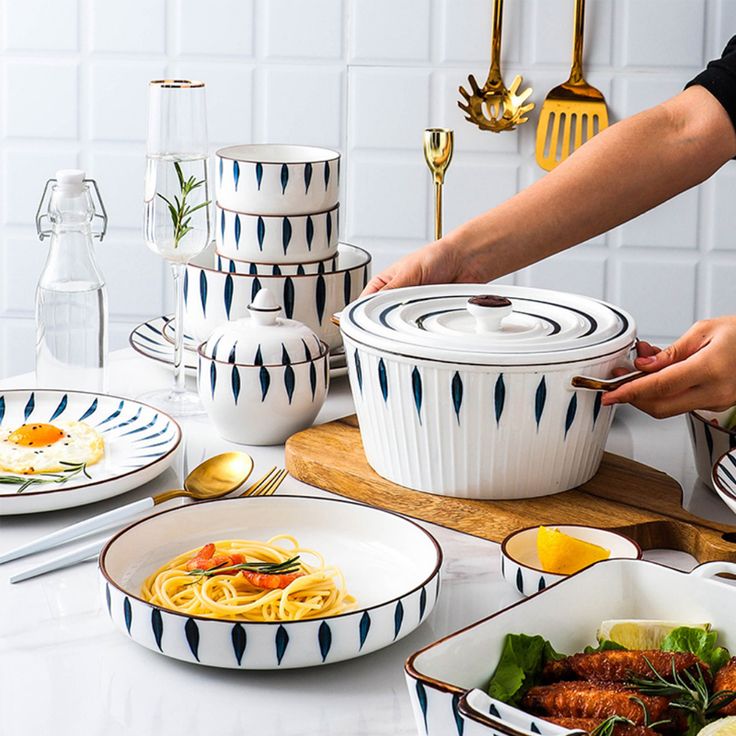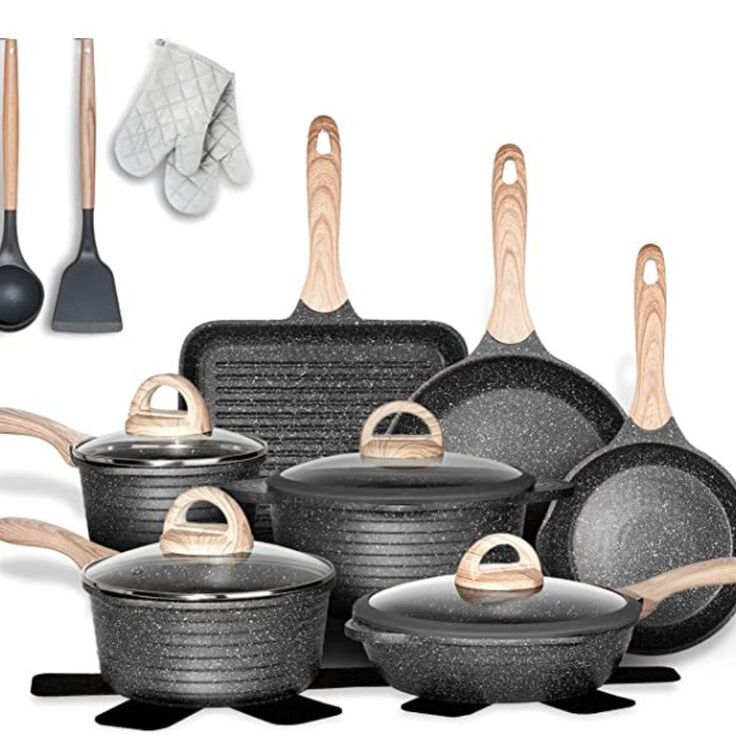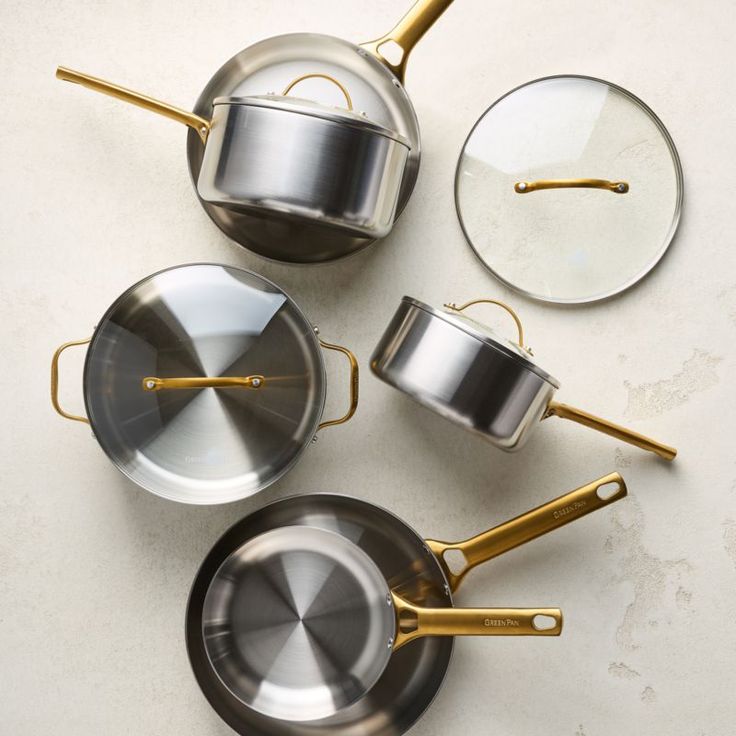Introduction: The Rise of Granite Cookware
In recent years, granite cookware has gained substantial popularity among home cooks and professional chefs alike. This type of cookware is often praised for its aesthetic appeal and purported health benefits. But is granite cookware good? Evaluating its benefits and drawbacks is essential for anyone considering this investment. This comprehensive analysis aims to offer a balanced view, helping you make an informed decision about whether granite cookware is a worthy addition to your kitchen.
The Aesthetic Appeal of Granite Cookware
One of the most apparent benefits of granite cookware is its visual appeal. The cookware’s speckled, stone-like finish lends a sophisticated and modern look to any kitchen. Unlike plain stainless steel or typical non-stick pans, granite cookware can add a touch of elegance and class. For those who enjoy not just the functionality but also the look of their kitchen tools, granite cookware offers a unique aesthetic advantage. The varied color schemes available can complement different kitchen decor styles, making it not just a utensil, but also a part of the kitchen’s overall design.
Non-Stick Properties and Cooking Performance
Granite cookware is renowned for its impressive non-stick capabilities. Thanks to its enamel coating, food is less likely to stick to the surface, making cooking and cleanup easier. This non-stick quality also allows you to cook with less oil, contributing to healthier meal preparation. The smooth surface ensures even heat distribution, reducing the chances of hotspots that could burn food. This feature is particularly beneficial when preparing delicate foods like fish or pancakes, which can quickly become problematic in other types of cookware.
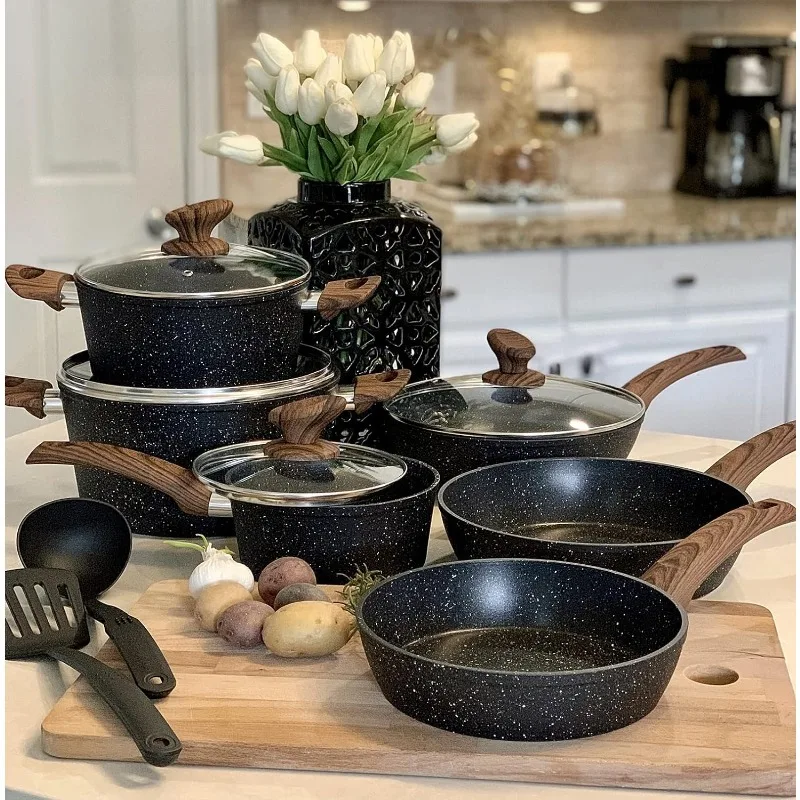
Durability and Longevity
Durability is another significant benefit of granite cookware. The enamel coating is highly resistant to scratches and chipping, ensuring that your cookware remains in good condition for a long time. Unlike traditional Teflon non-stick pans, which can degrade relatively quickly, granite cookware is built to withstand frequent use. Some high-quality products even boast being dishwasher-safe and metal utensil-safe, making them incredibly convenient for everyday use. However, the longevity of granite cookware largely depends on its build quality and how well it is maintained.
Health Implications: Is Granite Cookware Safe?
Safety is a paramount concern when evaluating cookware options. Granite cookware is generally considered safe because it doesn’t contain harmful chemicals like PFOA or PTFE, which can be found in some traditional non-stick coatings. These chemicals have been linked to various health issues when they degrade and release fumes at high temperatures. The enameled surface of granite cookware eliminates this risk, making it a safer alternative. Additionally, its non-stick properties mean you can cook with less oil, promoting a healthier diet.
The Weight Factor: A Double-Edged Sword
The weight of granite cookware can be both a benefit and a drawback. On one hand, the substantial weight provides stability and robustness, which can be advantageous for certain cooking techniques that require consistent heat application. On the other hand, the same heft can make the cookware cumbersome to handle, especially for individuals who may have limited strength or agility. Moving or lifting heavy pots and pans filled with food can be a strenuous task, potentially detracting from the cooking experience for some users.
The Price Point: Value for Money?
When it comes to price, granite cookware generally falls in the mid-to-high range segment. While it’s not as expensive as some high-end stainless steel or cast-iron options, it is definitely pricier than basic Teflon non-stick pans. Considering the benefits it offers, such as durability, aesthetic appeal, and health safety, many find that granite cookware provides good value for money. However, it’s essential to weigh these benefits against the potential drawbacks to determine whether it justifies the investment for you personally.
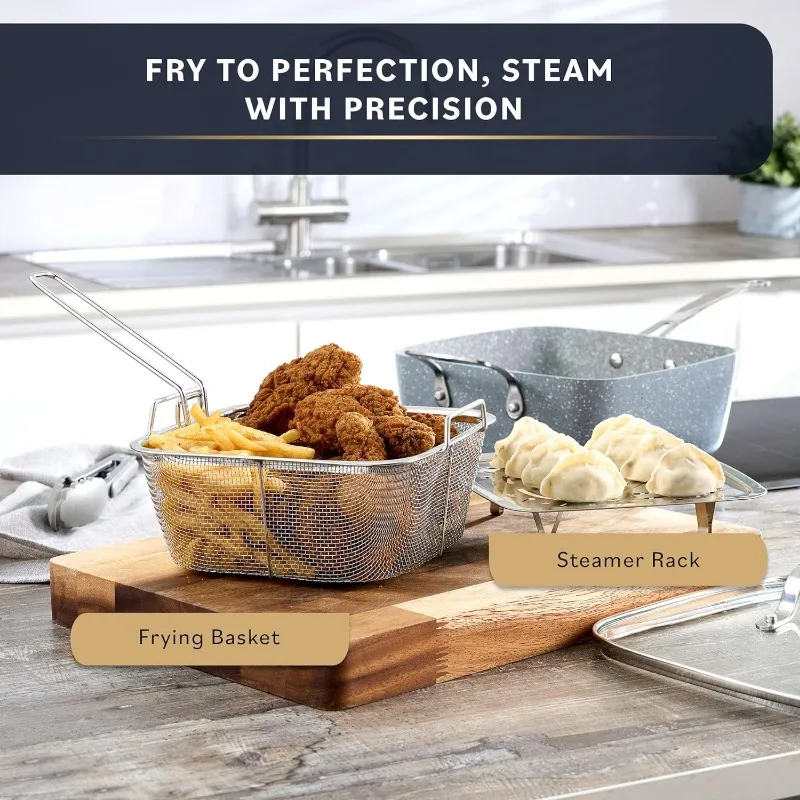
Ease of Maintenance
One of the touted benefits of granite cookwares is its ease of maintenance. Thanks to its non-stick surface, cleaning is generally straightforward and requires minimal effort. Most food particles can be removed with simple soap and water; however, it’s advisable to avoid abrasive cleaning pads to prolong the life of the enamel coating. Some granite cookware is dishwasher-safe, adding another layer of convenience. Still, it’s always best to consult the manufacturer’s guidelines to ensure you’re caring for your cookware correctly.
Environmental Impact and Sustainability
In today’s eco-conscious world, the environmental impact of products is a significant consideration. Granite cookware has some eco-friendly advantages. For one, its increased durability means fewer replacements over time, reducing waste. Moreover, the absence of harmful chemicals like PFOA and PTFE makes it a more environmentally benign choice. However, the production process still involves mining and manufacturing activities that have environmental implications. Weighing these factors can help you decide if granite cookwares aligns with your sustainability goals.
Versatility in Cooking Applications
Granite cookware is versatile and can be used for a variety of cooking methods, including frying, sautéing, boiling, and even baking. Its ability to withstand high temperatures makes it suitable for use in the oven as well as on the stovetop. This versatility can reduce the need for multiple types of cookware, simplifying your kitchen setup. The cookware’s even heat distribution makes it ideal for diverse culinary applications, from searing steaks to simmering delicate sauces.
Potential Drawbacks: Chipping and Cracking Risks
Despite its many benefits, granite cookware is not without its drawbacks. One of the significant concerns is the potential for the enamel coating to chip or crack, particularly if the cookware is dropped or mishandled. Once the coating compromise, it can affect the cookware’s non-stick properties and safety, as the exposed metal core may react with certain foods. It’s essential to handle granite cookware with care to avoid damaging the enamel surface and ensure its longevity.
Compatibility with Different Cooktops
Not all granite cookware is compatible with every type of cooktop. While most granite cookware works well on gas and electric stoves, it may not always be suitable for induction cooktops unless it has a magnetic base. If you have an induction stove, it’s crucial to check the product specifications to ensure compatibility. This consideration is important to avoid any inconvenience or additional costs associated with acquiring compatible cookwares for your specific cooktop.
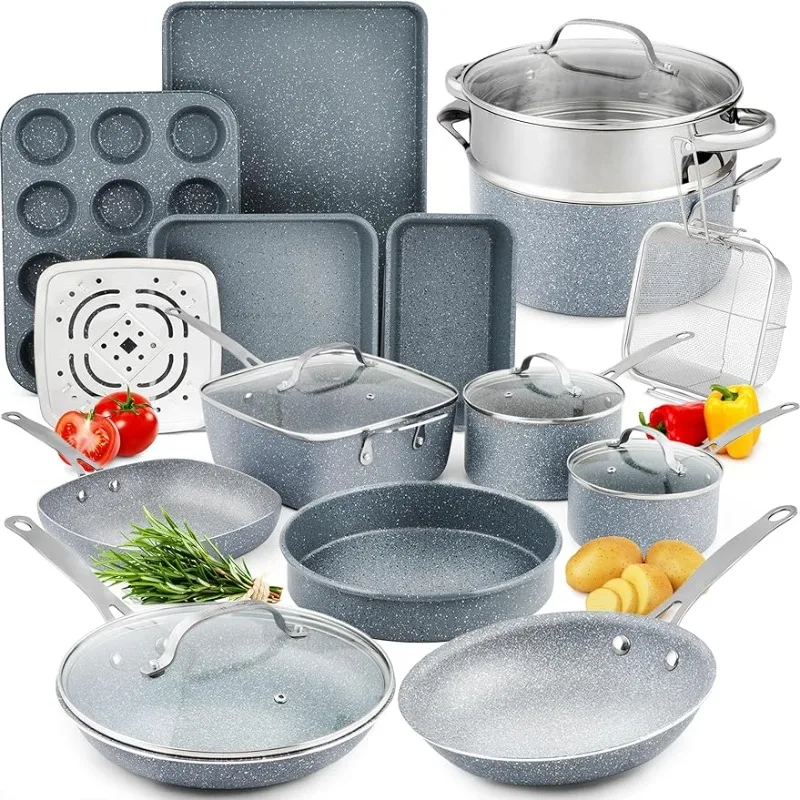
The Heating Efficiency
Granite cookware generally offers good heating efficiency due to its aluminum core, which conducts heat well. However, it’s worth noting that the enamel coating can sometimes inhibit heat transfer slightly, making heating slower than with bare aluminum pans. This characteristic is a trade-off for the benefits of the non-stick enamel surface. Some users may find this slight reduction in heating efficiency to be a minor inconvenience, while others may appreciate the more controlled heat distribution, which can prevent burning and sticking.
Long-Term Durability: A Matter of Quality
The long-term durability of granite cookware can vary significantly based on its quality. High-quality granite cookware, typically from reputable brands, offers better performance and longevity. These products often come with warranties, providing additional assurance of their durability. On the contrary, cheaper versions may not hold up as well under regular use, potentially chipping or losing their non-stick properties faster. Investing in a higher-quality product can offer better value over time, despite the higher upfront cost.
Consumer Reviews and Testimonials
Consumer reviews and testimonials can provide valuable insights into the practical pros and cons of granite cookwares. Real-world experiences from other users can highlight aspects that product descriptions may not cover, such as how the cookware performs over time or its actual ease of cleaning. When evaluating reviews, consider the overall trends rather than isolated comments. While one or two negative reviews might reflect unique issues, consistent feedback can give a more accurate picture of what to expect.
Comparing Granite Cookware with Alternatives
To fully assess whether granite cookware is good, it helps to compare it with other popular cookware options, such as stainless steel, cast iron, and traditional non-stick pans. Granite cookwares excels in visual appeal and non-stick properties but may lag in terms of heat retention compared to cast iron or stainless steel. Each type of cookware has its unique set of pros and cons, and the best choice often depends on individual cooking habits and priorities.
Conclusion: Making An Informed Choice
Granite cookware presents a compelling blend of style, functionality, and health benefits, but it also comes with certain limitations. By evaluating its benefits and drawbacks in detail, you can make an informed decision that aligns with your culinary needs and lifestyle. Whether you’re an avid home cook or a professional chef, understanding the ins and outs of granite cookware ensures that you can make a choice that enhances your cooking experience. In the end, the goal is to find cookware that not only meets your practical requirements but also brings joy and satisfaction to your time in the kitchen.

